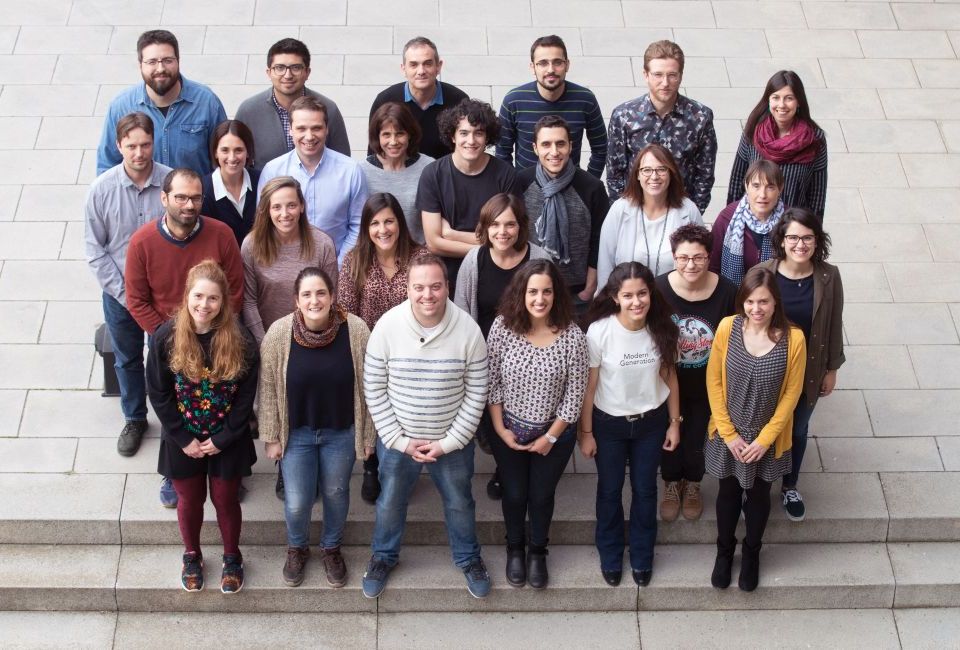
The BETA Technology Centre will coordinate a European project to convert livestock manure into biofertilisers
Livestock farms in Europe generate about 1400 Mt of manure every year. More than 90% of this is returned to crops in the form of fertilizers. However, the use of this livestock manure as agricultural fertilisers is often inefficient or sufficiently controlled, which leads to a problem of a concentration of slurry, which reduces crop yields and pollutes both soil and water. The FERTIMANURE research project will address this problem by developing innovative technologies that will turn livestock manure into high value added biofertilisers.
The BETA (Biodiversity, Ecology and Environmental and Food Technology) Technology Centre at University of Vic - Central University of Catalonia (UVic-UCC) will be coordinating this project, which is funded as part of the Horizon 2020 call for societal challenges, one of the most competitive in this European Union framework programme. The FERTIMANURE project lasts four years, will officially begin on 1 January 2020 and has a total budget of 8 million Euros, of which 1.03 Euros will be allocated to the BETA TC, which will coordinate a consortium of 21 members.
Biological fertilisers, tailor-made and competitive
FERTIMANURE will work to develop biological fertilisers (or biofertilisers) from livestock manure, which will be tailor-made for specific crops and competitive in today's market. The objective is to find "a sustainable solution to the problem of livestock manure, one of the most important at both Catalan and European level, by transforming this waste into high value-added products," explains Laia Llenas, the assistant director of CT BETA and coordinator of the project. According to Llenas, the project is "the only one on this scale financed at a European level and focusing on the recovery of livestock manure and the recovery of nutrients" which in addition, "will address the current barriers in the biofertilisers market both from a legislative point of view and in terms of public acceptance."
For this reason, during the four years that the project is underway, it will work in two broad areas: first, on developing technologies and processes that enable new biofertilisers to be obtained, and second, on creating the business plans that will enable them to be marketed and made available to the end users, i.e. livestock farmers. The project will also focus on questions such as whether farmers can treat manure on the farm for their own use, whether external plants should do this, or whether in an intermediate process, it can be initially treated on the farm before being transferred to the fertiliser plant. At the same time, it will assess the economic sustainability that it will have for farmers, and compare the agronomic quality between the new products developed and commercial fertilisers currently available.
A demonstration pilot project at a farm in the Osona region
FERTIMANURE is a consortium consisting of twenty European members and one Argentinian member, which together cover the entire value chain from livestock farmers to fertiliser production companies, by way of leading European universities and research centres, government agencies, clusters and associations which according to Llenas, "ensure that the results of the project can be replicated in several places, increasing its impact."
In Catalonia alone, the project will have a budget of almost 2 million Euros for a demonstration pilot for the recovery of slurry and poultry litter. This pilot will be located in the Osona region, on one of the farms of the Cooperativa Plana de Vic, which is also a member of FERTIMANURE, and will be run by the BETA TC and the Leitat Technology Centre.
Catalan leadership in the biofertilisers field
The Ministry of Agriculture, Livestock, Fishing and Food (MALFFF) of the Government of Catalonia is also involved in the project. "Leadership from Catalonia is crucial for our region to position itself and become a benchmark in the field of biofertilisers at a European level," says Sergio Ponsá, director of the BETA Technology Centre. In fact, new European legislation on fertilisers will enter into force in only two years time, and under those circumstances, "coordinating from a project of this magnitude from here will place Catalonia in a privileged position in terms of addressing those changes."
The members of FERTIMANURE include the most important and internationally recognised research groups in the field of livestock manure and fertilisers, including the University of Wageningen, the University of Ghent, the University of Milan and the Fraunhofer-Gesellschaft in Germany. Government agencies are also involved, including the French Chamber of Agriculture, the fertilizer companies association Fertilizers Europe, and companies such as Fertinagro Biotech and AlgaEnergy.
According to Ponsá, one of the European Commission's objectives with the launch of FERTIMANURE is "to obtain essential information and results for the development of future strategies and regulations related to sustainable livestock management and production in Europe." It also aims to "increase the competitiveness of the livestock sector and the production of biofertilisers," and to "reduce the dependence of nutrients from other countries."